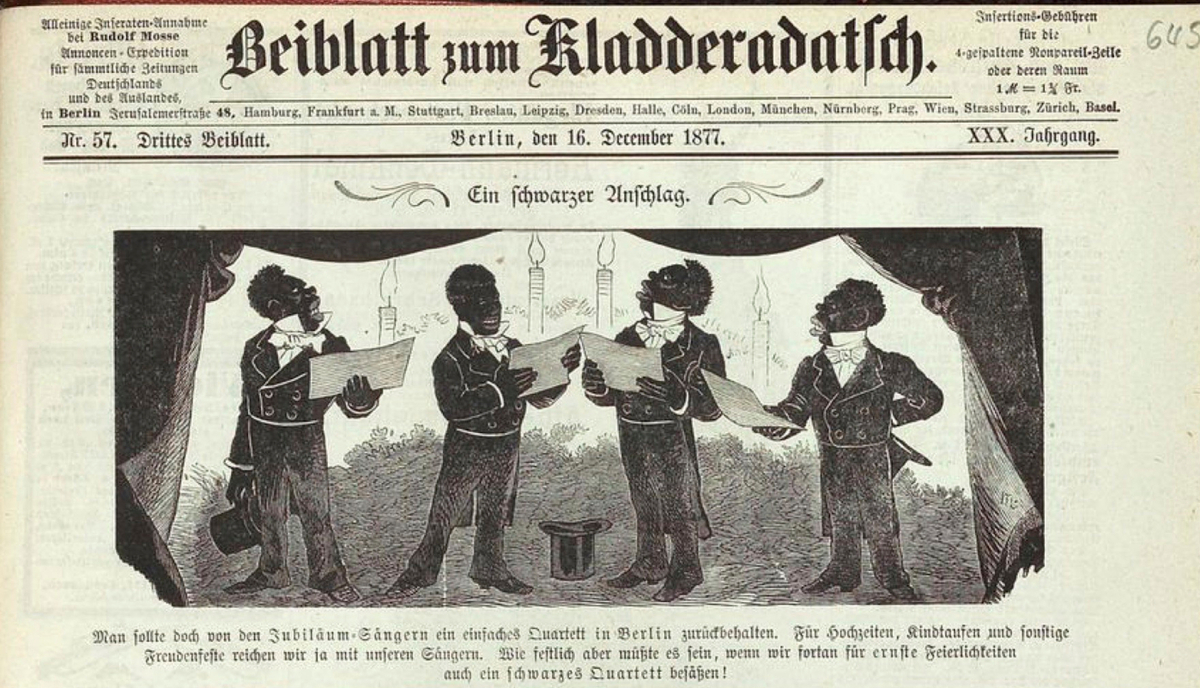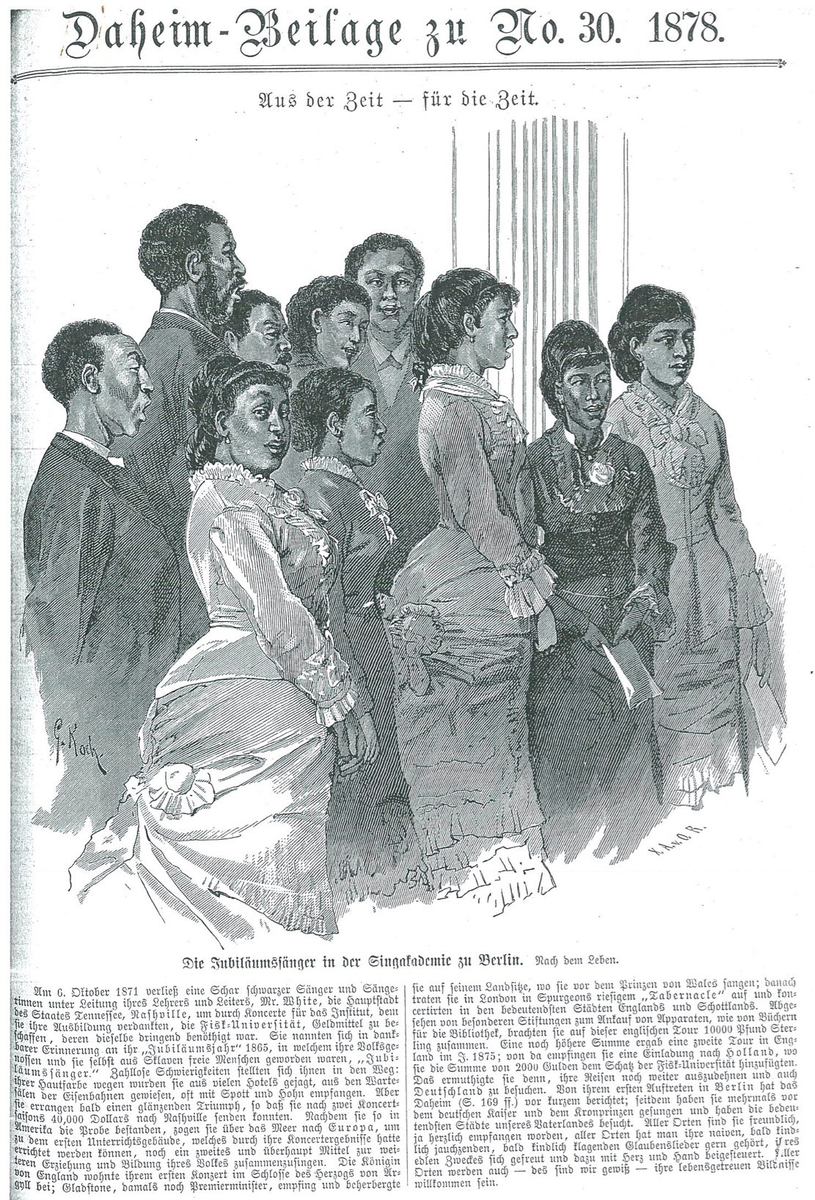Abstract
The Fisk Jubilee Singers were an African-American musical ensemble
who traveled to Germany between 1877 and 1878 to raise money for Fisk
University in Nashville, Tennessee. The Fisk Jubilee Singers are
credited with being the means by which African-American folk music,
spirituals above all, were adapted into concert pieces to be appreciated
as high culture, and they became world-famous after multiple tours
around the globe, including to Germany. Frederick J. Loudin (1836–1904)
joined the group in 1874 and quickly became a leading spokesman and
promoter. He was also a political radical who hoped to use the Singers’
growing international profile to draw attention to the struggle against
American racism and raise funds to combat it. We can see the range of
responses to their arrival in these two images: the first from the
satirical journal Kladderadatsch
(1877) and the second from the Protestant Christian family magazine
Daheim (1878). The first reduces the
performers to racialized caricatures that deny any individuality, while
the second’s more naturalistic portrayal emphasizes the performers’
humanity and dignity and even—through the sidelong gaze of one of the
singers—agency. The Fisk Jubilee Singers were so popular during their
stay in Germany in 1877 that they published a songbook for audiences to
purchase. Meant to be sung in the comfort of one’s home, the songbook
featured popular spirituals and other hymnals translated into German for
German consumers.

